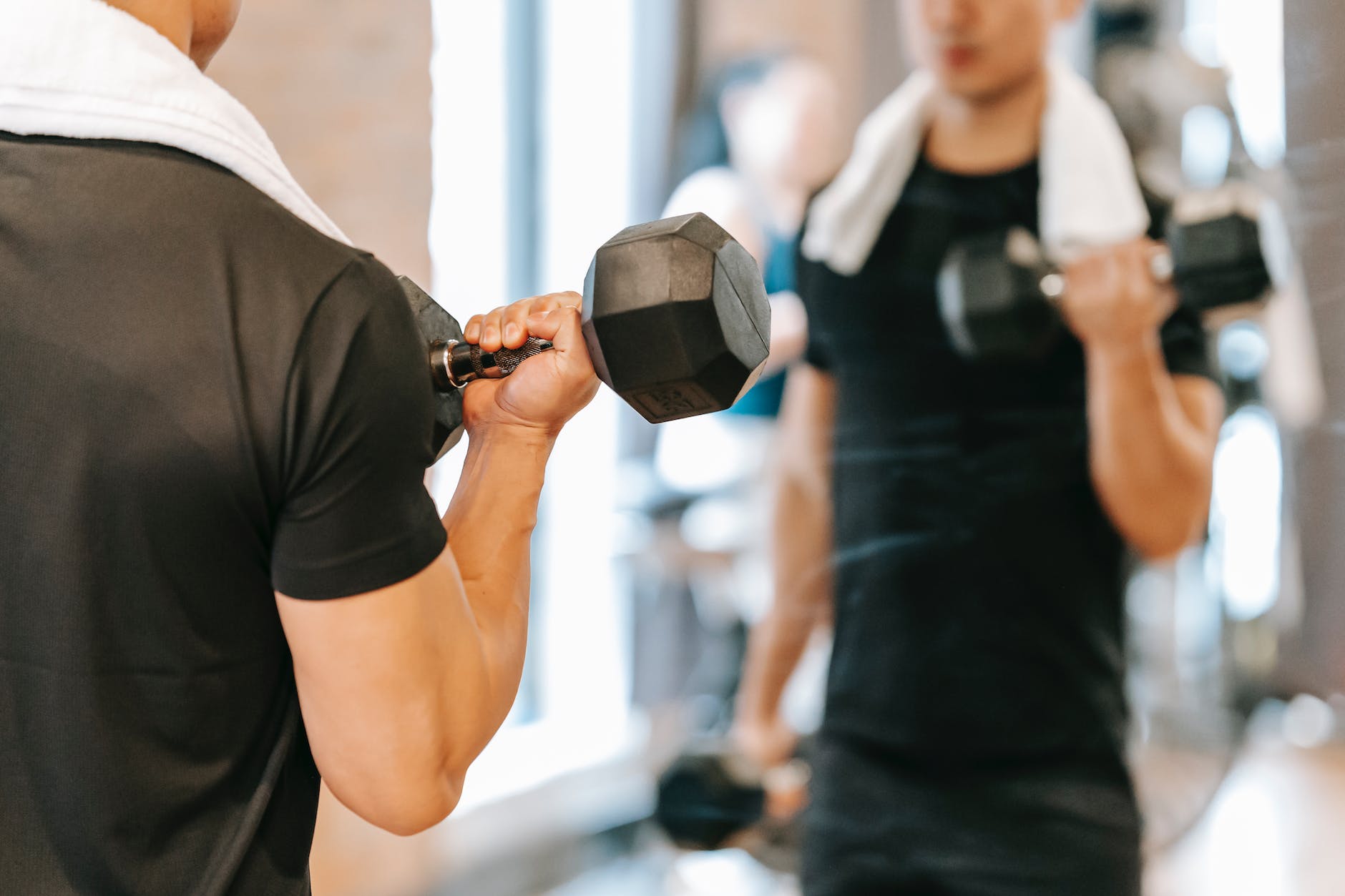Facts about muscle loss:
I’m sure everyone noticed that they do have more sprains, and aches in their body as they proceed beyond their 30s. These are the earlier signs of Muscle Loss.
I recall when I was still actively exercising, my weight was always easier to control. Gaining a few Kilos is fine as I can always cut back on some calories and lose them again. Calorie deficit was working well for me in managing my weight when it was done with exercise.
But when I removed these activities entirely for a few years I gained a whooping 16KGs. Constantly having to buy bigger clothes throughout the year.
- Muscle Loss occurs sooner than you expect
- We usually associate muscle atrophy (loss of muscles) in old age where the advanced stage sets in. This severely impacts our stability and affects walking without assistance. But it begins much earlier, starting in our 30s.
- A sedentary Lifestyle is the main culprit
- Most of us who have desk jobs go through the day sitting. And doesn’t include physical activities for the rest of the day for the longest period. This will further increase the rate of muscle loss.
- Muscle Loss has more consequences than ageing gracefully
- When we lose muscles, our metabolism decreases. Affects overall health like less energy, increased tiredness, and low stamina, and makes it easier to gain weight.
- Most of our quick daily meal lacks proper Macros
- The ratio of Macronutrients, especially the lack of Protein also causes muscle loss to occur at a quicker rate. The body shrinks muscles in our body when we lack this one Nutrient.
Having Muscles isn’t about having defined Abs.
Though that would be an awesome benefit yes? But having muscles isn’t just about having a perfect beach body. With abs muscles visible all the time.
Here are some benefits you should also know and why you won’t want to lose your muscles.

- More muscles mean higher and faster metabolism
- The best way to increase or get a faster metabolism is to have more muscles. It will help you burn more calories even when you’re not active.
- This means consuming slightly more calories which muscles need without gaining weight easily.
- All daily task requires muscle.
- Be it going up a flight of stairs, walking around, carrying groceries, carrying your baby around.
- When you lose muscles these become increasingly difficult and you get tired more easily.
- Protecting your Bones and Joints.
- Muscles protect our bones and joints, decreasing the chance of injuries in case of falls or ‘unforeseen circumstances’.
- Health Risk linked to low muscle mass
- Though indirectly, low muscle mass is also known to increase the risk of diabetes and heart disease in some studies.
What can we do to Prevent/Reverse Muscles Loss?
To prevent muscle loss from occurring in our body. And to keep as much of them as we age, we should seek out healthy, sustainable ways, these can be:
- Consuming sufficient protein in our meals
- Busy lives may not allow us to prepare all our meals, but even when eating out frequently, you should consider protein intake at every meal.
- According to most research (e.g., Ghosh, Suri, & Uauy, 2012; Wu, 2016), a good range for daily protein intake for adults is 1.2g/kg to an upper limit of 3.0g/kg body weight.
- For example, a person weighing 70kg needs to consume around 84g of protein daily to meet this target (1.2g/kg x 70kg = 84g).
- Get active, don’t skip Strength Training
- As I mentioned earlier, a sedentary lifestyle is one of the main culprits behind muscle loss. Our muscles waste away (atrophy) when they’re not used.
- Adding at least 1, or 2 sessions of strength training per week instead of just doing cardio exercises. This can help build muscles.
- Sleep well, muscles grow during rest.
- Constantly staying up late prevents the body from getting the rest it needs. This disrupts our body’s functions to produce the hormones required to repair and build muscles.
- Aim for at least 7-8 hours of sleep per night.
- Manage your stress level.
- High stress leads to muscle loss too!! Cortisol (a type of Stress hormone) remains elevated when we are stressed. This causes our muscles to break down for energy.
- Chronic stress also impairs with production of growth hormones, muscle repairs and growth will be hindered, and we take longer to recover after exercise or from injuries.
- Elevated cortisol also interferes with protein synthesis and even contributes to inflammation within our body.
Summing up on Muscles Loss
In conclusion, muscle loss isn’t just about aesthetics; it has a significant impact on our overall health and well-being as we age.
By incorporating methods like strength training, sufficient protein intake, adequate sleep, and stress management into our routines, we can combat muscle loss and maintain a strong, healthy body for a more active and fulfilling life.
References
- Ghosh, S., Suri, D., & Uauy, R. (2012). Assessment of protein adequacy in developing countries: quality matters. British Journal of Nutrition, 108(S2), S77–S87. doi:10.1017/S0007114512002577
- Wu G. (2016). Dietary protein intake and human health. Food & function, 7(3), 1251–1265. https://doi.org/10.1039/c5fo01530h
Discover more from Max Wholesome
Subscribe to get the latest posts sent to your email.








